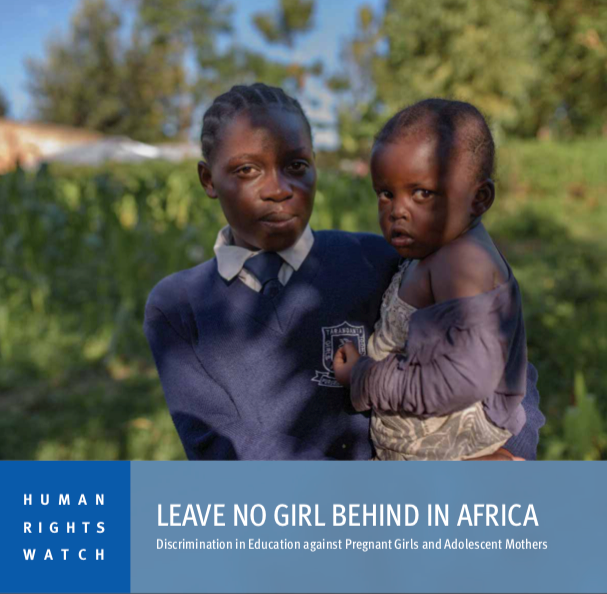Leave No Girl Behind in Africa – Discrimination in Education against Pregnant Girls and Adolescent Mothers
The African continent has the highest adolescent pregnancy rates in the world, according to the United Nations. Every year, thousands of girls become pregnant at the time when they should be learning history, algebra, and life skills. Adolescent girls who have early and unintended pregnancies face many social and financial barriers to continuing with formal education.
All girls have a right to education regardless of their pregnancy, marital or motherhood status. The right of
pregnant—and sometimes married—girls to continue their education has evoked emotionally charged discussions
across African Union member states in recent years. These debates often focus on arguments around “morality,” that pregnancy outside wedlock is morally wrong, emanating from personal opinions and experiences, and wide-ranging interpretations of religious teachings about sex outside of marriage. The effect of this discourse is that pregnant girls – and to a smaller extent, school boys who impregnate girls– have faced all kinds of punishments, including discriminatory practices that deny girls the enjoyment of their right to education. In some of the countries researched for this report, education is regarded as a privilege that can be withdrawn as a punishment.
But the international legal obligation of all governments to provide all children with an education, without discrimination, is clear.
In 2013, all the countries that make up the African Union (AU) adopted Agenda 2063, a continent-wide economic
and social development strategy. Under this strategy, African governments committed to build Africa’s “human
capital,” which it terms “its most precious resource,” through sustained investments in education, including
“elimination of gender disparities at all levels of education.” Two years after the adoption of Agenda 2063,
African governments joined other countries in adopting the United Nations Sustainable Development Goals (SDGs), a development agenda whose focus is to ensure that “no one is left behind,” including a promise to ensure inclusive and quality education for all. African governments have also adopted ambitious goals to end child marriage, introduce comprehensive sexuality and reproductive health education, and address the very high rates of
teenage pregnancy across the continent that negatively affect girls’ education.
Yet many AU member states will fail in this promise if they continue to exclude tens of thousands of girls from
education because they are pregnant or married. Although all AU countries have made human rights commitments to protect pregnant girls and adolescent mothers’ right to education, in practice adolescent mothers are treated very differently depending on which country they live in.
